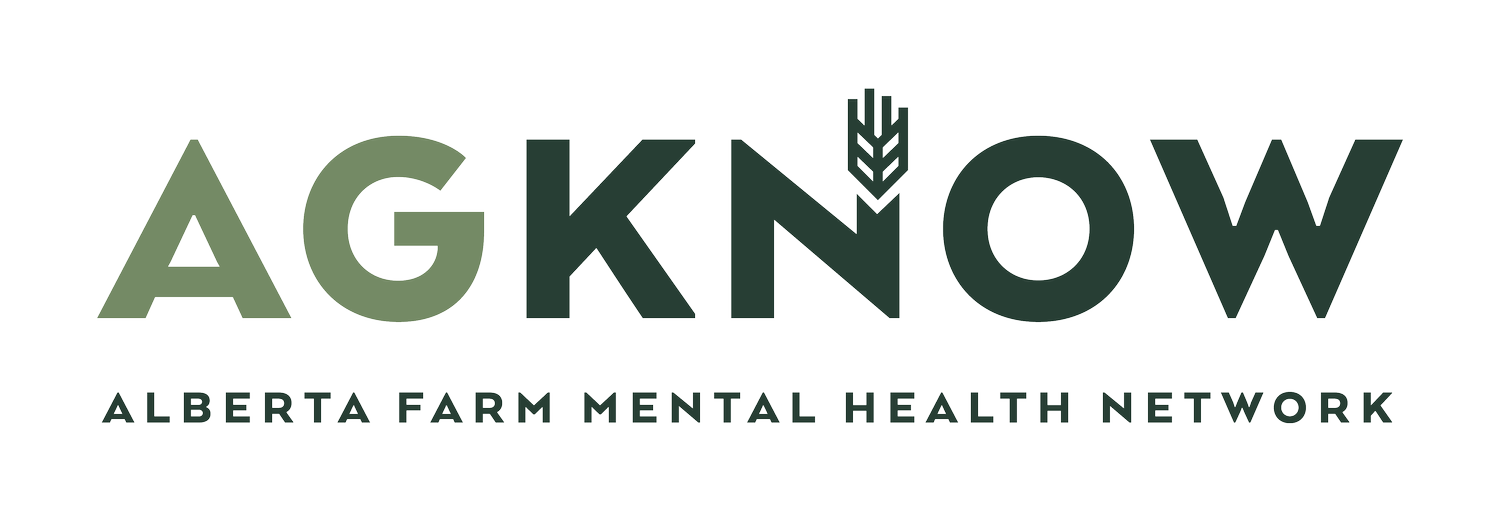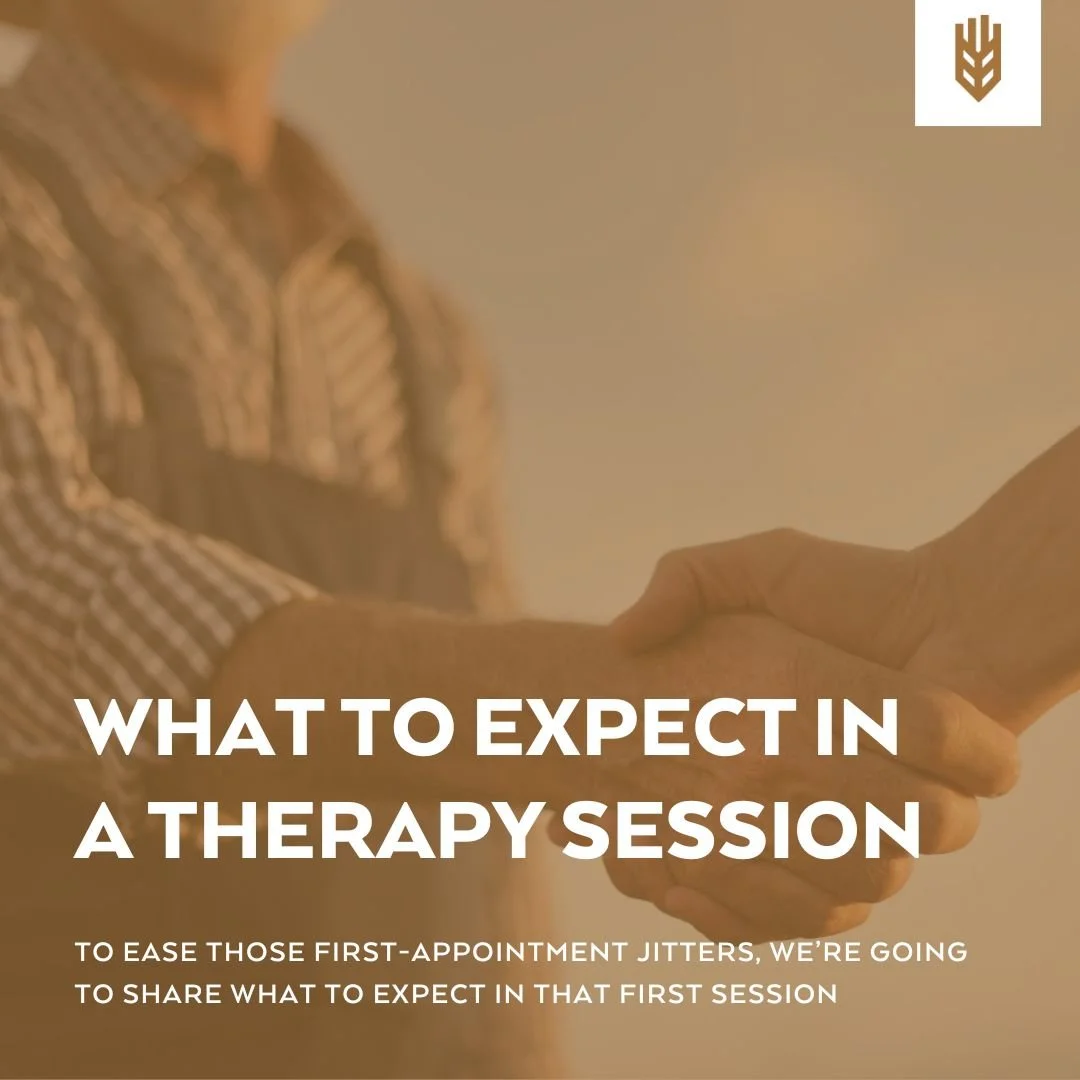Anxiety
Have you ever had to speak in public and felt really nervous about that? Your palms were sweaty, your heart was racing, and you had butterflies in your stomach. But once you finished speaking and sat down, you calmed down and started feeling like yourself again. Feeling nervous like this is perfectly normal and very common. But imagine if that feeling of nervousness and impending doom stuck with you all day?
If this is the case for you, it’s a sign that something is wrong because it will interfere with work, your relationships, and your ability to get a good night's sleep. Anxiety disorders are mental health conditions that can affect how we think, feel and act. About 1 in 3 Canadian adults between 30-59 years old have been diagnosed with an anxiety disorder. Among farmers? It’s even more common, according to a recent study.
SIGNS OF ANXIETY
Although there are different types of anxiety disorders, there are a few common symptoms to watch out for:
Having irrational and excessive fear
Being apprehensive
Feeling tense
Having trouble managing daily tasks
OTHER SIGNS TO WATCH OUT FOR
Some psychological and behavioural symptoms include:
Having constant anxious thoughts (e.g., “I’m losing control”)
Avoiding situations or activities
Creating safety behaviours to feel safer
Being hypervigilant
excessive physical reactions relative to the context (e.g., heart racing and feeling short of breath in response to being at the mall).
Some physical symptoms of anxiety may be mistaken for a heart attack and include:
Racing heart
Feeling suddenly dizzy
Sweating a lot
Shortness of breath
Trouble sleeping
TYPES OF ANXIETY
Anxiety is a broad category, and there are specific types of anxiety that a person might have:
-
Phobias are intense fear about a specific thing like an object, animal, or situation.
-
Panic disorders cause people to feel a sudden and intense fear without any warning. Their heart races, they’re short of breath, and they feel physically sick. The symptoms are similar to a heart attack.
-
Agoraphobia is a fear of being in a situation where someone thinks they won’t be able to find help if they experience a panic attack. This fear can be so intense that people avoid public places or even leave their homes.
-
Social anxiety is an intense fear of being embarrassed or evaluated negatively by others, so people avoid social situations which can really impact work and relationships.
-
Obsessive Compulsive Disorder (OCD) is feeling constant anxiety that causes them to perform certain rituals or routines such as checking that the door is locked five times or excessively washing their hands for fear of germs.
-
Generalized anxiety disorder is excessive worry around a number of everyday, minor problems for more than six months.
-
Post-traumatic stress disorder (PTSD) sometimes happens after a very scary or traumatic event, such as abuse, an accident, or a natural disaster. A person might relive the event through nightmares or flashbacks, and generally feel unsafe even when they aren’t in danger.
CAUSES OF ANXIETY
We don’t know the exact cause of anxiety disorders. We do know that there’s not just one cause, but rather anxiety is the result of a combination of biological factors, psychological factors and challenging life experiences such as:
a traumatic life event
genetics family history of anxiety disorders
childhood development issues
alcohol, medications or illegal substances
a high level of stress that changes our brain chemistry
WHAT CAN YOU DO
Anxiety isn’t something you can get over on your own. It’s an illness that impacts a person’s ability to live an everyday, productive, happy life. Talk to a doctor and tell them how you’ve been feeling. Many physical health conditions cause symptoms of anxiety. A doctor will look at all possible causes of anxiety.
Each anxiety disorder has its specific treatment, but any therapy usually focuses on helping you find healthy ways to cope so that you can manage your anxiety so that it doesn’t manage you. Treatments typically include a combination of:
Counselling, such as cognitive-behavioural therapy (or ‘CBT’), is often the first treatment to try for mild or moderate problems with anxiety. It teaches you how to identify and change the unhelpful patterns of thinking that feed anxious thoughts.
Medication could include anti-anxiety or antidepressant medication to reduce how often you feel anxious or the intensity of your anxiety so that it’s easier to learn coping strategies that work for you.
Support groups, whether in person or online, can be an excellent place to share your experiences and connect with others in your boots.
Self-help strategies can be helpful when we need a tune-up every once in a while. They might involve simple stress management and relaxation strategies like mindfulness or deep breathing.
AgKnow is not intended to be a substitute for professional medical advice, diagnosis, or treatment. If you are in crisis, please visit your local emergency department or call 911. If you are experiencing anxiety, there are lots of treatments available for you.
Resources for Anxiety
Article by Dr Rebecca Purc-Stephenson
Applied Social Psychologist and Professor in the Department of Social Sciences
BOOKING AN AGKNOW SESSION
CHOOSE A THERAPIST
The members in our referral network have experience with farmers and the agriculture industry in Alberta. We know context is important so you can spend less time getting them up to speed and more time getting to the root of the issue.
SCHEDULE A CALL
You have direct access to everyone in our referral network, so once you find a therapist you resonate with, fill out their form and book your first session.
TALK ABOUT IT
Whether in person, virtual or through a telephone session now is your chance to talk about how you are really doing. Remember - we were never meant to do this alone.








